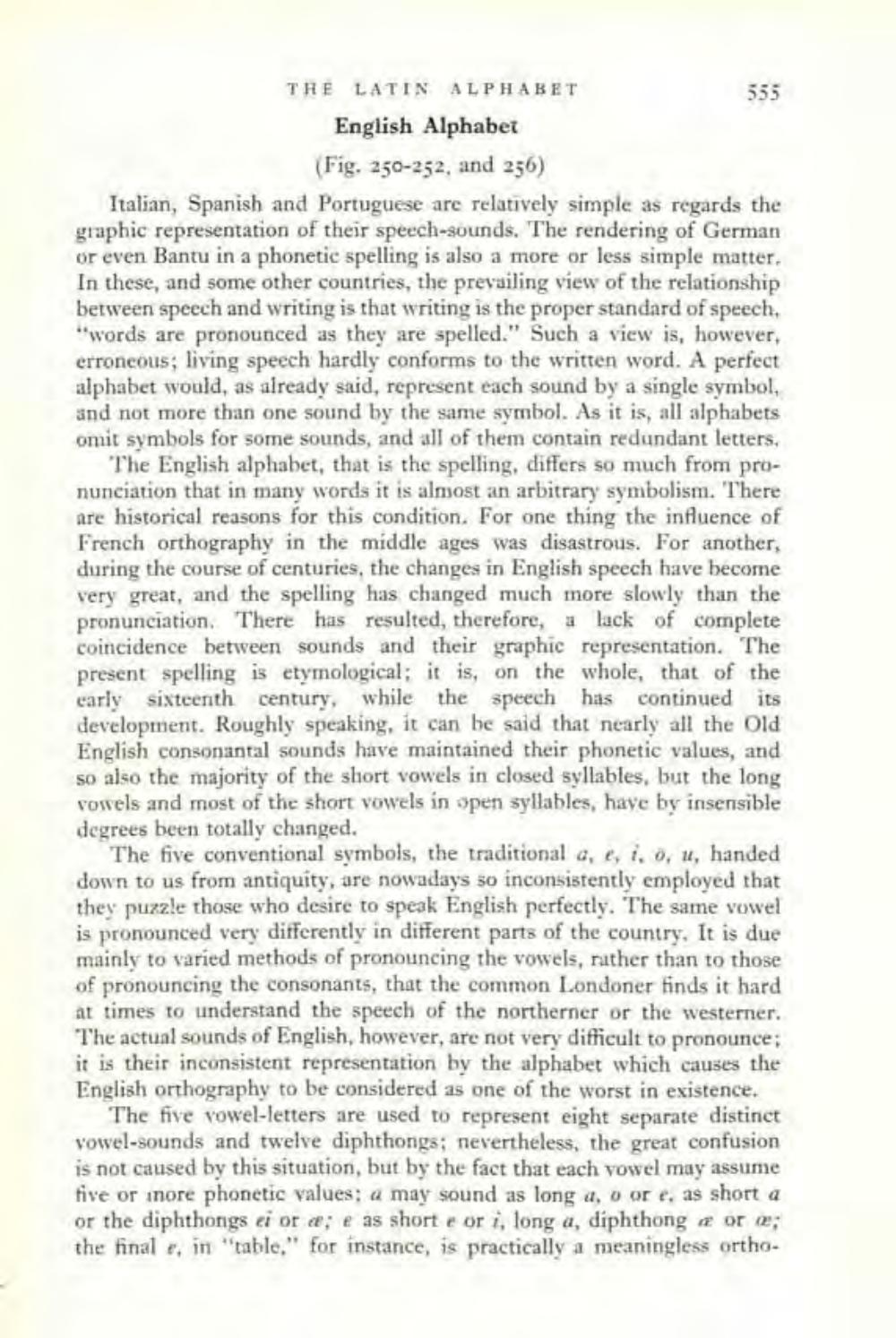________________
THE LATIN ALPHABET
English Alphabet (Fig. 250-252, and 256)
Italian, Spanish and Portuguese are relatively simple as regards the graphic representation of their speech-sounds. The rendering of German or even Bantu in a phonetic spelling is also a more or less simple matter. In these, and some other countries, the prevailing view of the relationship between speech and writing is that writing is the proper standard of speech, "words are pronounced as they are spelled." Such a view is, however, erroneous; living speech hardly conforms to the written word. A perfect alphabet would, as already said, represent each sound by a single symbol, and not more than one sound by the same symbol. As it is, all alphabets omit symbols for some sounds, and all of them contain redundant letters,
The English alphabet, that is the spelling, differs so much from pronunciation that in many words it is almost an arbitrary symbolism. There are historical reasons for this condition. For one thing the influence of French orthography in the middle ages was disastrous. For another, during the course of centuries, the changes in English speech have become very great, and the spelling has changed much more slowly than the pronunciation. There has resulted, therefore, a lack of complete coincidence between sounds and their graphic representation. The present spelling is etymological; it is, on the whole, that of the early sixteenth century, while the speech has continued its development. Roughly speaking, it can be said that nearly all the Old English consonantal sounds have maintained their phonetic values, and so also the majority of the short vowels in closed syllables, but the long vowels and most of the short vowels in open syllables, have by insensible degrees been totally changed.
The five conventional symbols, the traditional a, e, i, o, u, handed down to us from antiquity, are nowadays so inconsistently employed that they puzzle those who desire to speak English perfectly. The same vowel is pronounced very differently in different parts of the country. It is due mainly to varied methods of pronouncing the vowels, rather than to those of pronouncing the consonants, that the common Londoner finds it hard at times to understand the speech of the northerner or the westerner. The actual sounds of English, however, are not very difficult to pronounce; it is their inconsistent representation by the alphabet which causes the English orthography to be considered as one of the worst in existence.
The five vowel-letters are used to represent eight separate distinct vowel-sounds and twelve diphthongs; nevertheless, the great confusion is not caused by this situation, but by the fact that each vowel may assume five or more phonetic values; a may sound as long a, o or e, as short a or the diphthongs ei or e; e as short e or i, long a, diphthong or ; the final e, in "table," for instance, is practically a meaningless ortho




